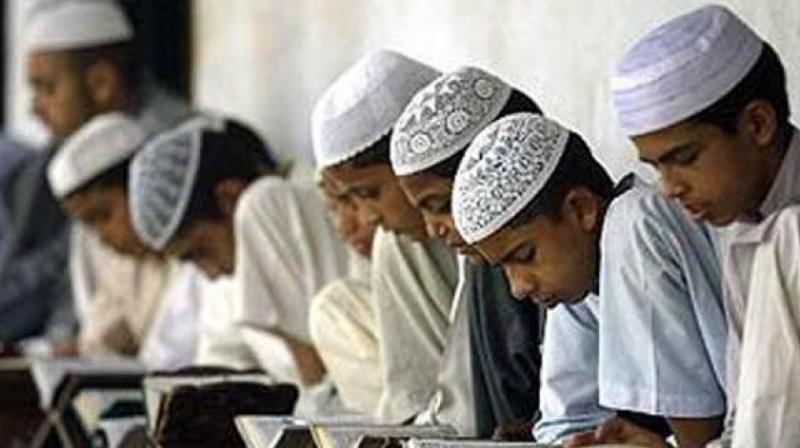Afghan children illegally taken to Pak madrasas to learn Taliban's ways: police
The police called it child trafficking and threw the drivers and the only other adults, 2 men who organised the convoy, into jail.

Kabul: It was a routine check. Two vans, both without license plates, were stopped earlier this month by police in Afghanistan’s eastern Ghazni province, where Taliban hold sway in large swathes of the countryside.
Inside, police found 27 boys between the ages of 4 and 15, all being taken illegally to Pakistan’s south-western Balochistan province to study in seminaries called madrasas, according to a police report acquired by The Associated Press.
The authorities said that the children were being taken to Pakistani madrasas to educate a new generation in the ways of the Taliban, with the intention of returning them to Afghanistan to enforce the same rigid interpretation of Islam practiced by the radical religious movement until its ouster by US-led coalition forces in 2001.
The police called it child trafficking and threw the drivers and the only other adults, two men who organised the convoy, into jail. But the parents said they wanted their children to study in Pakistan and had willingly sent them to Quetta, the capital of Pakistan’s sparsely populated Balochistan province on the border with Afghanistan.
Quetta is significant to Afghanistan’s Taliban, many of whom graduated from madrasas there. It is also considered the headquarters of the Taliban leadership council, which is widely referred to as the “Quetta shura.”
An Afghan counter terrorism official, who spoke on condition of anonymity because revealing his identity could endanger him, said Afghan intelligence has identified 26 madrasas in Pakistan where it suspects future generations of Taliban are being trained and in some cases instructed in carrying out suicide bombings.
Several of the 26 madrasas he identified were in Quetta. Sheikh Abdul Hakim madrasa was among the Quetta schools the Afghan official identified as a Taliban recruitment centre.
The AP went to the madrasa and was told the director, after whom the madrasa is named, was on a missionary sabbatical to preach Islam, but a teacher, Azizullah Mainkhail, said some students at the madrasa were from Afghanistan.
The majority, however, he said are Pakistanis from villages throughout Balochistan. He denied affiliation with the Taliban or Pakistan’s powerful intelligence agency known by the acronym ISI and accused by Afghanistan of supporting the Taliban.
The madrasa is massive, surrounded by high walls that shelter several buildings of mud and cement. Mainkhail said 350 students live and study there.

